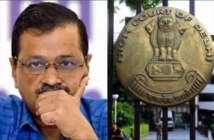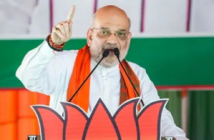Panaji, Aug 13 (IANS) Nurturing an innovative ecosystem in the populous rurales of India with world class multi-disciplinary research and investing in education, skilling and livelihoods of children and youth in the rural neighbourhoods through the concept of ‘Cillage’ could be the next big idea that Indian policymakers should tinker with, according to Padma Vibhushan awardee nuclear scientist Anil Kakodkar.
Speaking to IANS on Friday, the former director of Bhabha Atomic Research Centre (BARC), who was part of the core team which anchored the Pokhran II nuclear tests in 1998, said that despite the fast pace of the rural-to-urban migration in the country, villages still hold the key to the country’s success, when it comes to economic growth with reduced disparity.
“Even today, the majority of the Indians (and youth) live in villages, despite one of the fastest migrations that is taking place in the country. In principle, with the knowledge era around us, the opportunities in the rural domain should be bigger as compared to the urban domain. This is because in the modern knowledge-based digital society, rural areas can contribute in all the three segments of economy, i.e., agriculture, manufacturing and service sector, in a better way as compared to urban areas,” Kakodkar said.
“The prerequisite, however, is to capacity-build rural youth through education, skilling, local research, technology awareness and entrepreneurship by nurturing a right innovation ecosystem which I call ‘Cillage’. Ten such big Cillage universities located in rural domain, doing world class multidisciplinary research and integrally linked (through outreach mode) with children and youth in the rural neighbourhood for their education, skilling and livelihood needs, could make the difference,” he said, adding that such an initiative should enable average rural income to be on par or better than in cities and contribute to a significant growth of the economy with reduced disparity.
Adopting the Cillage concept, Kakodkar said, in essence would put India on the path of being a “stable and harmonious society with a rapidly growing sustainable economy”.
Asked about the impediments, which adopting the innovative and out-of-the-box concept would entail, the former chairperson of the Atomic Energy Commission of India, said: “Making such a transition is a major mindset related issue at multiple levels. Sustained engagement with people is necessary for such a, what I would call, ‘cultural transformation’.”
Speaking on his vision for India in the years ahead, Kakodkar said that he would like to see the quality of life in India being comparable or better than the best in the rest of the world, with equitable distribution of wealth.
“This would necessitate both wealth creation and its more equitable dispersion, significantly reducing disparities which seem to be growing at present. One would also need inculcation of better human values. This would mean far greater empowerment of people at the grassroots through quality education, health awareness and conducive innovation ecosystem in the society,” he said.
One of the country’s top nuclear scientists, Kakodkar also said that while India has done well in comprehensive development of nuclear technologies covering the dimensions of security, energy, health, agriculture etc., despite “internal and external hurdles”, the role of nuclear energy today is under-appreciated.
“Unfortunately, the appreciation of the inevitable role that nuclear energy should be playing in a carbon constrained world and its important role in building a competitive economy in India is far less than adequate,” he said.
–IANS
maya/arm




